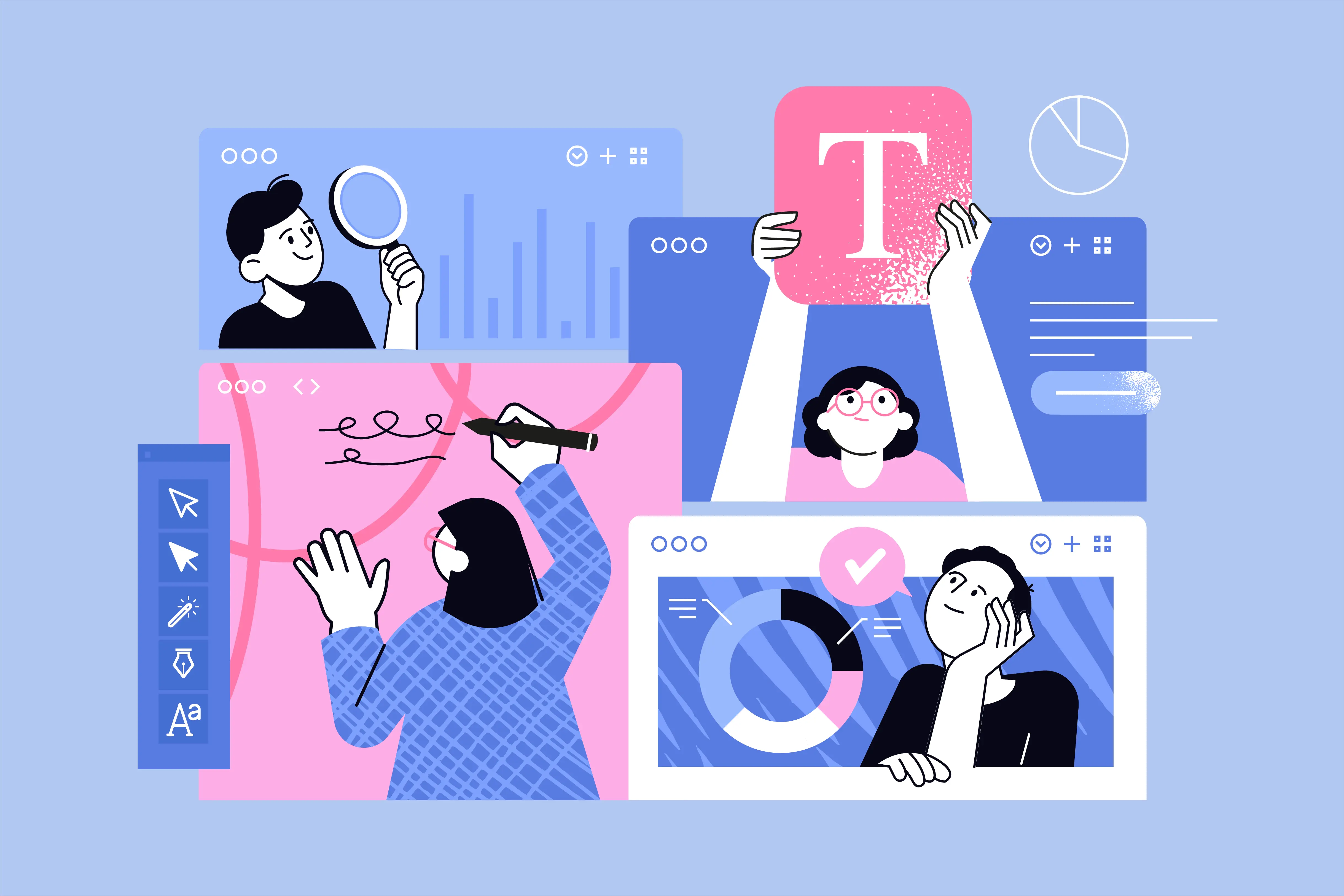Beyond the Hype: Addressing AI Accuracy, Bias, and Human Oversight in Healthcare
A realistic look at the challenges of AI in healthcare, including accuracy, bias, and the critical role of human oversight in responsible AI deployment.
Anthony Gauthier
Co-founder & Chief Clinical Officer

Beyond the Hype: Addressing AI Accuracy, Bias, and Human Oversight in Healthcare
The excitement and transformative potential surrounding Artificial Intelligence (AI) in healthcare are undeniably immense. AI promises a future characterized by unprecedented operational efficiency, deeply personalized patient care pathways, and significantly streamlined administrative and clinical operations. As healthcare digital transformation continues to evolve, this vision, while compelling, necessitates a pragmatic and candid conversation about the inherent challenges and complexities that accompany the integration of AI into such a critical and sensitive domain. To truly move beyond the speculative hype and responsibly realize AI's profound potential, we must proactively and rigorously address legitimate concerns regarding its accuracy, the pervasive potential for algorithmic bias, and the absolute, non-negotiable necessity of robust human oversight. For conversational AI systems and healthcare organizations to evolve into a truly valuable and trusted partner, these foundational issues must be confronted and mitigated with unwavering commitment.
Key Takeaways:
- Acknowledge Imperfection: AI, particularly real-time voice transcription systems, is not flawless. Acknowledging its limitations is the first step toward safe implementation.
- Prioritize Human Oversight: AI should function as a tool to support, not replace, human clinical judgment. Clinician validation is essential.
- Confront Bias: Responsible AI development requires a commitment to mitigating algorithmic bias through diverse data and rigorous testing.
- Embrace Transparency: The future of trusted AI in healthcare lies in principles of transparency and explainability.
The Critical Challenge of AI Accuracy and Unwavering Patient Safety
One of the most immediate and pressing concerns regarding the widespread adoption of AI in healthcare directly pertains to the realm of clinical documentation and data integrity. While generative AI systems and AI-powered speech recognition technology (SRT) offer a compelling promise of dramatically accelerating the process of medical note-taking and data entry, it is crucial to acknowledge that this technology is not, and cannot be, infallible. In fact, several rigorous studies have illuminated a significant reality: dictated notes, even with advanced SRT, can exhibit a higher incidence of errors compared to meticulously manually typed notes. A particularly alarming subset of these errors has been identified as clinically significant, meaning they possess the potential to directly impact patient diagnosis, treatment, and overall safety.
This inherent potential for error underscores precisely why human oversight is not merely a recommended best practice; it is an absolute, non-negotiable requirement for safeguarding patient well-being. At AlloMia, this principle forms the bedrock of our secure voice AI design and deployment philosophy. Our AI systems are conceived and engineered to function as powerful, intelligent assistants, capable of generating efficient first drafts of clinical notes, managing routine inquiries, and automating repetitive tasks. However, the ultimate responsibility and authority for validating any information that directly influences patient care always, without exception, rests with the human clinician.
The overarching goal is to strategically augment human capabilities and clinical judgment, rather than to abdicate or diminish professional responsibility. This collaborative model ensures that the precision and nuanced understanding of human expertise remain central to every patient interaction—a principle that addresses the critical concern of reducing clinician burnout while maintaining quality care standards.
Confronting the Pervasive Challenge of Algorithmic Bias in Healthcare
A more complex, subtle, and potentially insidious challenge inherent in the deployment of AI voice assistants within healthcare is the pervasive issue of algorithmic bias. This critical concern arises when an AI model is trained on datasets that are either incomplete, unrepresentative of the diverse patient population it is intended to serve, or, more troublingly, reflect and embed existing societal biases. In such scenarios, the AI can inadvertently perpetuate, or even significantly amplify, existing health disparities and inequities. An AI system that demonstrates diminished accuracy or efficacy for specific demographic groups—be it based on race, gender, socioeconomic status, or other factors—is not merely a technical flaw; it represents a profound ethical failure with tangible, detrimental impacts on patient care and health outcomes.
Adding to this complexity is the notorious "black box" problem, a characteristic of many advanced AI models where the internal decision-making process remains opaque and largely inscrutable. This lack of transparency can severely erode trust among both clinicians and patients, and critically, it makes it exceedingly difficult to effectively audit the system for fairness, accountability, and the presence of unintended biases.
Building a truly ethical AI framework for healthcare demands a conscious, continuous, and multi-faceted effort. This commitment must encompass:
- The Imperative of Diverse and Representative Data: It is paramount to actively seek out, curate, and utilize training data that comprehensively reflects the full diversity of the patient population. This proactive approach helps to mitigate the risk of models learning from skewed or biased information.
- Rigorous and Continuous Bias Testing: The development lifecycle must incorporate robust and systematic testing protocols specifically designed to identify, quantify, and address potential biases across various demographic groups. This is an ongoing process, not a one-time check.
- Unwavering Commitment to Transparency and Explainability: The future of trusted AI in healthcare hinges on fostering greater transparency in how AI models are constructed, how they process information, and, crucially, how they arrive at their conclusions. Striving for explainable AI (XAI) is key to building confidence and enabling effective oversight.
The "Human-in-the-Loop": AlloMia's Design Philosophy and Regulatory Compliance
Our approach to responsible AI deployment is rooted in a "human-in-the-loop" philosophy that aligns with evolving regulatory requirements and privacy standards. We believe that AI is at its best when it functions as a sophisticated tool in the hands of a skilled human professional, while maintaining the highest standards of workflow management.
This means:
- AI as a Supportive Tool: The AI is designed to handle the 80% of routine, administrative, or informational tasks, freeing up human experts to manage the 20% of complex, nuanced, or critical situations. This approach helps improve patient satisfaction while maintaining clinical oversight.
- Clear Escalation Protocols: Our voice agents are designed with clear protocols to recognize the limits of their capabilities and to escalate a conversation to a human professional whenever necessary. This ensures that empathetic AI interactions don't compromise clinical judgment.
- A Commitment to Explainable AI (XAI): We believe the future of the industry lies in Explainable AI (XAI)—systems that can provide clear reasoning for their decisions and recommendations. This is key to building long-term trust with both clinicians and patients.
Our commitment to these principles extends beyond technical implementation to encompass comprehensive compliance automation tools and adherence to legal considerations. As detailed in our comprehensive approach to data privacy and security, we ensure that our HIPAA compliant AI voice assistant and SOC 2 healthcare solutions meet the highest standards of regulatory compliance.
Measuring Success: ROI and Performance Metrics
Implementing responsible AI oversight doesn't mean sacrificing efficiency or return on investment. In fact, when properly executed, healthcare workflow automation can deliver significant value while maintaining safety standards. Healthcare organizations considering AI implementation should utilize workflow automation ROI calculator tools to quantify the benefits of responsible AI deployment.
The key is understanding that the business case for AI in healthcare extends beyond simple cost savings to include improved patient outcomes, reduced liability, and enhanced trust—all of which contribute to long-term financial sustainability.
Key Challenges and Mitigation Strategies for AI Voice Agent Adoption
| Challenge | Specific Issues | Mitigation Strategies |
|---|---|---|
| Technical Integration | Legacy EHRs, Incompatible Data Formats | Robust APIs & Interoperability Frameworks, autonomous clinical documentation AI |
| Accuracy & Patient Safety | High Error Rates, Misinterpretation of Information | Mandatory Human Oversight & Validation, predictive analytics in digital health |
| Regulatory Compliance | HIPAA Mandates, SOC 2 Certification, Data Privacy | End-to-End Encryption, Robust BAAs, Data Minimization |
| Ethical Concerns & Bias | Algorithmic Bias, Lack of Transparency | Diverse Training Data, Explainable AI (XAI) Features |
| Workforce Resistance | Clinician Skepticism, Patient Discomfort | Comprehensive Training, Clinician Involvement in Design |
The Future of Responsible AI in Healthcare
As we look toward the future, the integration of AI in healthcare will continue to evolve, driven by advances in predictive analytics and autonomous clinical documentation. However, the fundamental principles of accuracy, bias mitigation, and human oversight will remain paramount.
The most successful healthcare organizations will be those that recognize AI as a powerful tool that enhances human capabilities rather than replacing human judgment. This balanced approach ensures that we harness the transformative potential of AI while maintaining the compassionate, nuanced care that defines quality healthcare.
A Partnership Between Human and Machine
The future of AI in healthcare is not a story of replacement, but one of partnership. By acknowledging the challenges of accuracy and bias, and by embedding the principle of human oversight into the core of our technology, we can build AI systems that are not only powerful but also safe, fair, and trustworthy. It is this responsible approach that will unlock the true potential of AI to enhance clinical judgment, improve efficiency, and ultimately, deliver better care for everyone.
As healthcare organizations navigate this transformative landscape, the key is to remain focused on the ultimate goal: leveraging technology to improve patient outcomes while maintaining the highest standards of safety, ethics, and regulatory compliance. This balanced approach ensures that AI becomes a trusted partner in the delivery of exceptional healthcare.
Ready to Transform Patient Care?
Discover how AI voice agents can streamline your healthcare operations and enhance patient experiences.
By Anthony Gauthier
Co-founder & Chief Clinical Officer
Healthcare shouldn't be complicated for patients or providers. As a practicing pharmacist and operations leader, I bring real-world clinical experience to every aspect of AlloMia's development. My mission is ensuring our AI voice technology integrates seamlessly into healthcare workflows while maintaining the highest standards of patient safety and regulatory compliance.
Related Articles
Continue exploring our AI Insights


